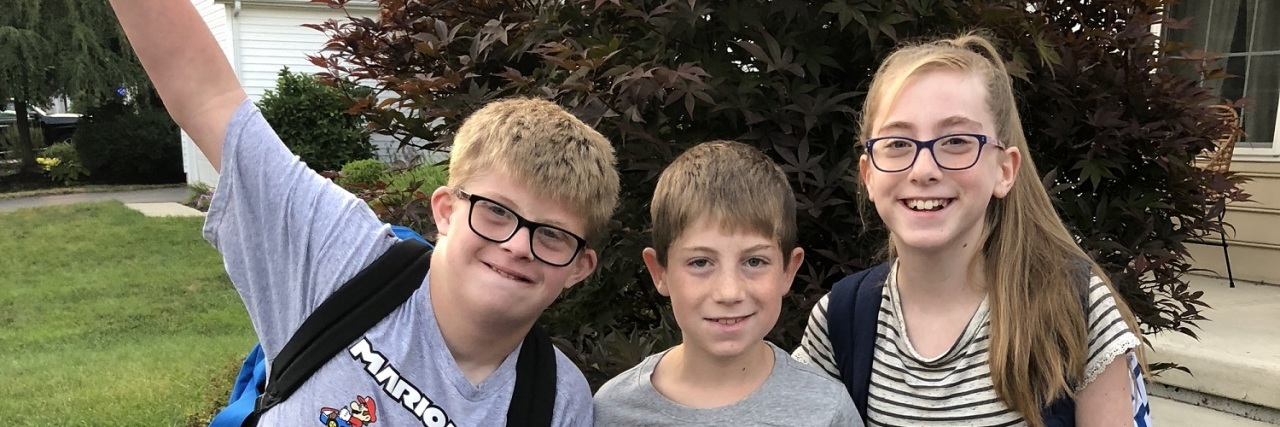Yes, It Takes a Village to Raise Our Kids With Disabilities...But an Inclusive One
It’s a bittersweet time of year, when parents send their children off to begin a new year at school. I always have mixed feelings; yes, it’s difficult to see another summer draw to a close, but it’s also exciting to see the kids off to new adventures. There is sadness in realizing that they are another year older and that much closer to leaving the nest, but there is also an overwhelming feeling of pride and delight in watching them learn to spread their wings just a little bit further.
But then the reality of the routine starts to set in: the earlier bedtimes, the much earlier wake up times, the homework (for both the kids and me…yay, paperwork!), and yes, the stress. Having a child with disabilities means that there is usually an extra side of stress in whatever situation we find ourselves in. A new school year is no different. While we are fortunate to have a wonderful school and enthusiastic teachers and administrators, there still is an undeniable dose of stress as we fervently work to settle ourselves into the new routine.
As parents, we often hear the phrase “it takes a village.” This village can be key in helping everyone become accustomed to their new schedules. With three busy kids, I’m realizing that despite my best efforts, maybe I really can’t be in two (or more) places at the same time and I’ve leaned on parents in our community for help. Parents of kids with disabilities need that village, too. While I am blessed to be part of #theluckyfew, this particular network is worldwide and we don’t always have someone nearby that truly understands the challenges of our day-to-day lives. I do have many friends that are more than willing to help out with all of my kids, and for that I am thankful. However, there are still some things I wish that everyone could understand about my kiddo with Down syndrome, so that I could feel more comfortable in my “village,” especially when it comes to school and his education. I’m sure I’m not alone in these sentiments, but I do understand that some things just aren’t common knowledge. To that end, here are some items to consider:
1. Please presume competence.
This can be a tough one, as our society generally hasn’t been great about treating people with disabilities like they would treat anyone else. But, that is exactly what needs to happen. Expectations should be set higher, and we should allow students with disabilities to be much more than objects of inspiration.
2. We need allies.
All too often, parents in the disability community don’t have allies among our friends who have typically developing children. Not everyone may realize, for example, that special education is a service, not a place, or that children with disabilities have a right to be educated among their peers and not in segregated buildings or classrooms. Instead of asking why these things are happening, they assume that’s just how things should be. Those who do understand the challenges faced by many parents in the disability community tend to revere us as “super heroes,” instead of seeing us as parents who are advocating for our children with disabilities the same way we’d advocate for our children without disabilities. We need allies, not accolades. Find out what our concerns are, and consider ways you may be able to help.
3. Encourage inclusion.
Everyone wants to belong and feel worthy. Are your children inviting all kids to birthday parties, to sit with them at lunch, or attend social functions? Are all kids in your neighborhood school represented on sports teams and school clubs? If not, maybe find out how you can help create a more inclusive environment for all of your children’s peers. Inclusion truly benefits everybody, and it’s becoming much more common. By insisting on inclusive practices, we are making our communities much stronger, better places.
These are just a few ways we can all build stronger, more vibrant and caring villages. I encourage everyone to consider these as we all set out to provide an amazing new school year for our kids.

